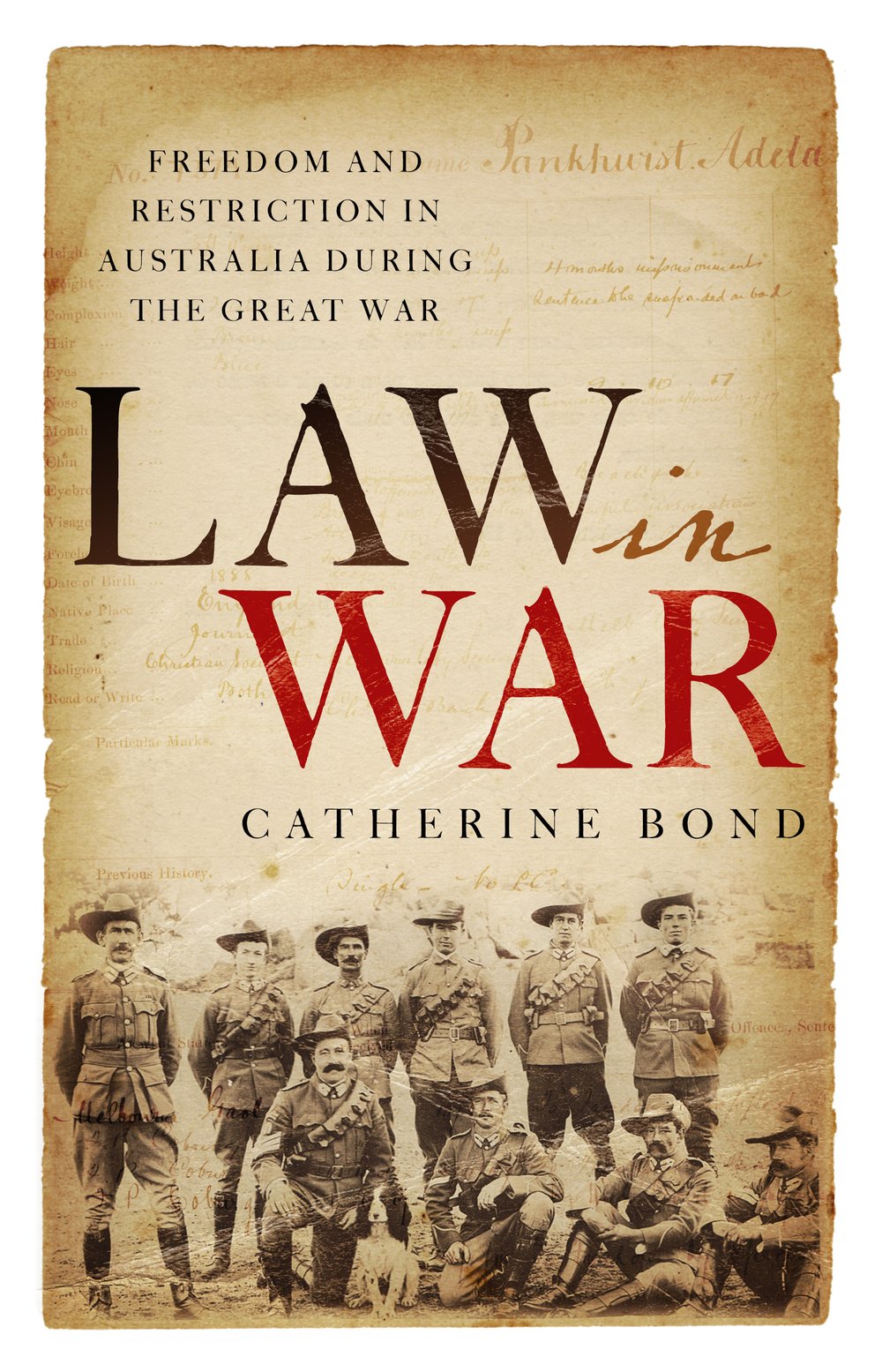With the spread of COVID-19 and the outbreak of a global health emergency, rights and freedoms that would never normally be curtailed are increasingly being subject to government-imposed restrictions.
While many in the community see the sense and benefit of these restrictions, others have begun to wonder how far, legally, these may go. This raises the concurrent question of, once the emergency has been resolved, when and how will governments roll back such conditions?
Some answers can be found in how governments used law to regulate life in Australia during another great emergency – the First World War.
Law in War: Freedom and restriction in Australia during the Great War examines how everyday rights and freedoms were restricted by law over this period. It explores the lives of individuals who interacted with and were impacted by these laws – those who wrote them, enforced them, were interned or imprisoned by them, among others – exposing how law was used as a tool of oppression and discrimination during this time.
The book also reveals how many modern laws contain provisions similar to those used over the course of hostilities, in areas including freedom of association, mandatary detention and deportation.
More recently, however, there are also concerning parallels with those being created in relation to the current COVID-19 crisis.
Legislation passed by the NSW Parliament on 24 March 2020, for example, grants broad powers to the NSW Government to create regulations in a range of areas, with no requirements that such regulations be reviewed by Parliament. This was a common form of governing in the First World War, enabled by a now-infamous statute passed by the Federal Parliament, the War Precautions Act.
That law allowed the Federal Government to introduce regulations it deemed necessary for ensuring the ‘public safety and defence’ of Australia. As a result, during the First World War, hundreds of new rules were introduced to control countless areas of daily life.
These included restrictions on everything from how much could be charged for a loaf of bread, to what could be published in newspapers, to the sale of alcohol.
As the war progressed, more serious restrictions were introduced, including on who could vote in elections, where protests could take place, and prohibiting membership of certain ‘unlawful associations’ considered to be in conflict with the Australian war effort.
Specific rules were also enacted around the detention of individuals resident in the Commonwealth but born in countries that Australia was at war with, including Germany and Austria. However, over the course of the war, indefinite internment of any individual believed to have ‘hostile origin or associations’, whether born in Australia, Britain or otherwise, became permissible.
Law in War uncovers how those responsible for creating these laws, primarily Attorney-General and Prime Minister William ‘Billy’ Hughes, boasted of the power exerted over the community during this time, despite the ruined lives, broken families and financial hardships caused by the law.
While hostilities may have ended on 11 November 1918, it took until the end of 1920 for the Federal Government to begin winding back the restrictions imposed by the War Precautions Act and other laws. However, that repealing legislation reintroduced some of the wartime rules into other statutes and granted the government power to make regulations in other areas.
Filled with colourful, deeply personal and thought-provoking stories, Law in War: Freedom and restriction in Australia during the Great War is both an exposé on how far governments will go in the name of ‘public safety and defence’, and a call to arms for vigilance over the repeal of everyday rights and freedoms.
Catherine Bond's book Law in War: Freedom and restriction in Australia during the Great War will be published by NewSouth in April 2020.



